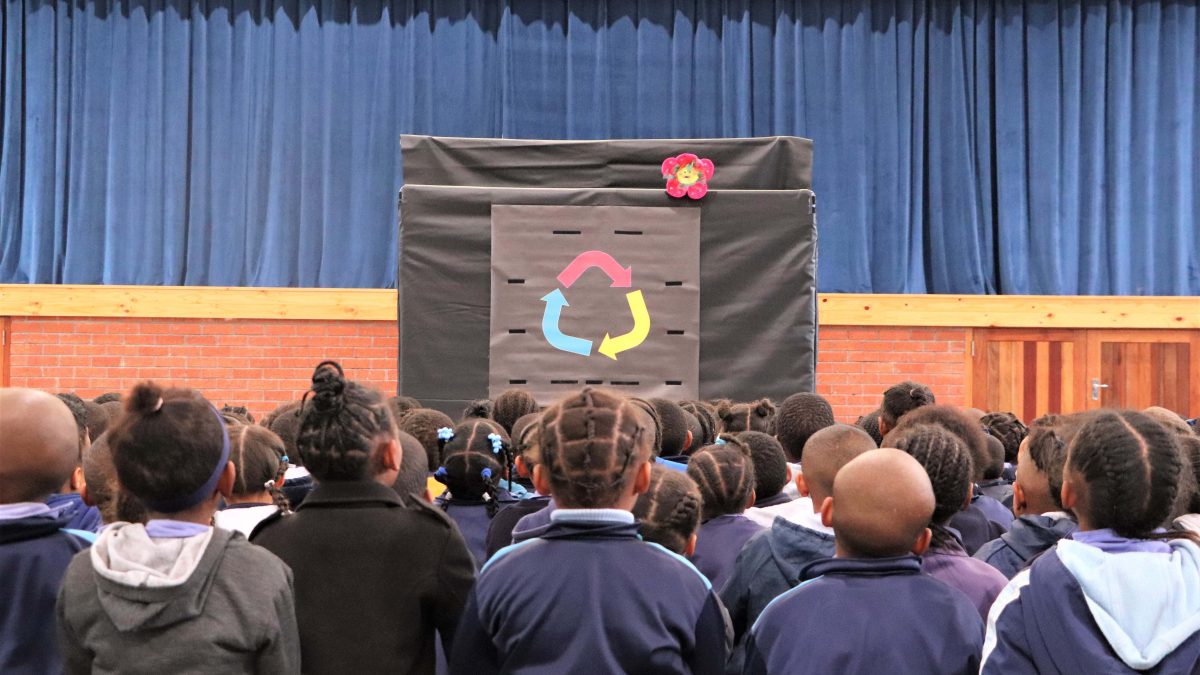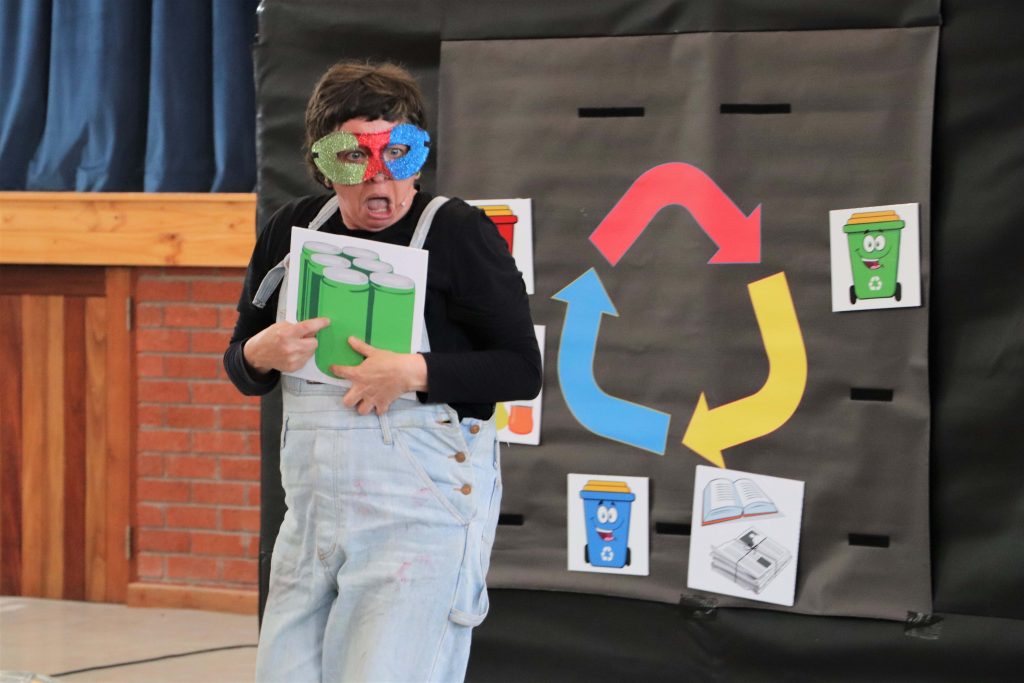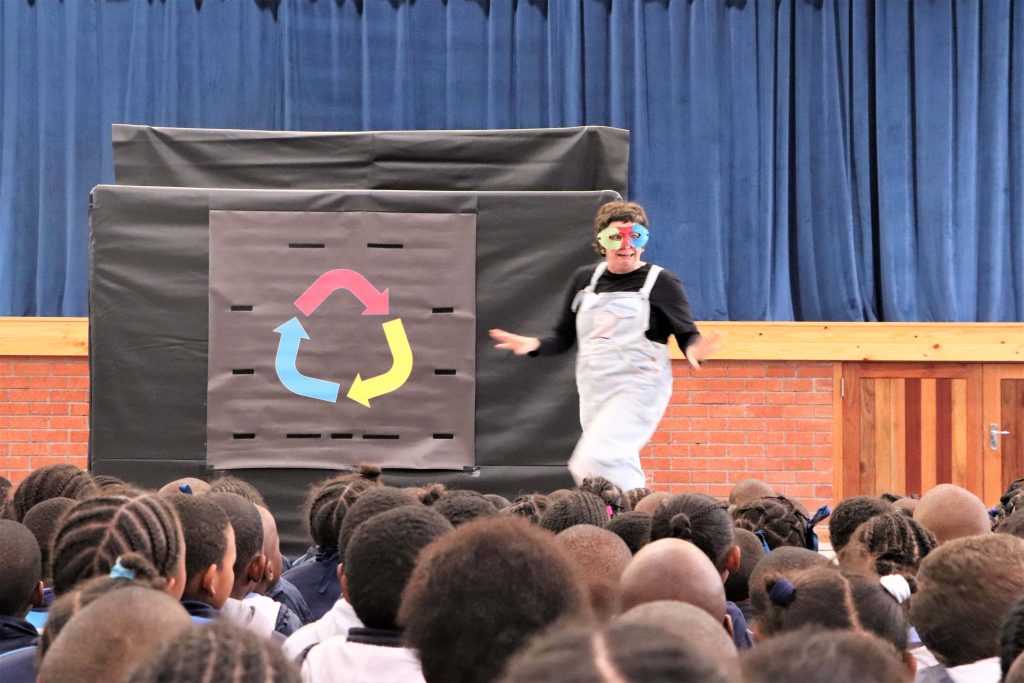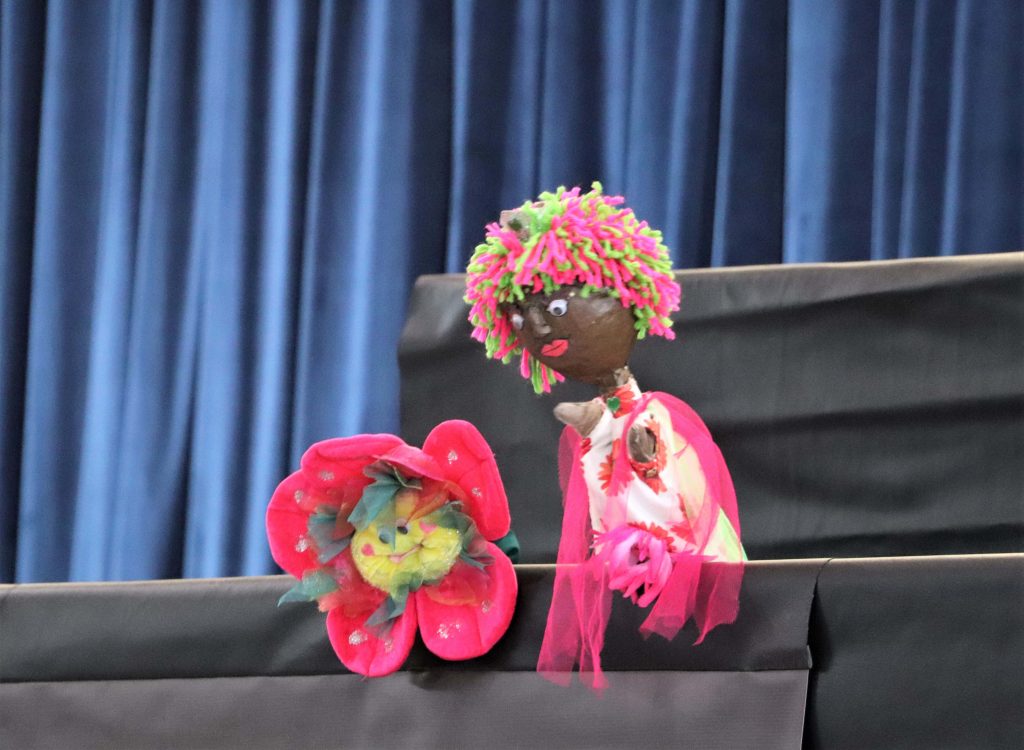
Warsaw’s climate action and urban transformation inspires cities across the globe
September 3, 2019
Bogor advocates for accelerated climate action at Seoul Mayors Forum on Climate Change
October 25, 2019Teaching six-year-olds to sort bottles and newspapers will reduce waste to landfill and lower emissions until the excitement fades and the bins are full. But, a new project in the Overberg community has more sustainable goals. A simple model connecting local entrepreneurs, schools and the municipality hopes to inspire continued action, create jobs, and even attract national buy-in.
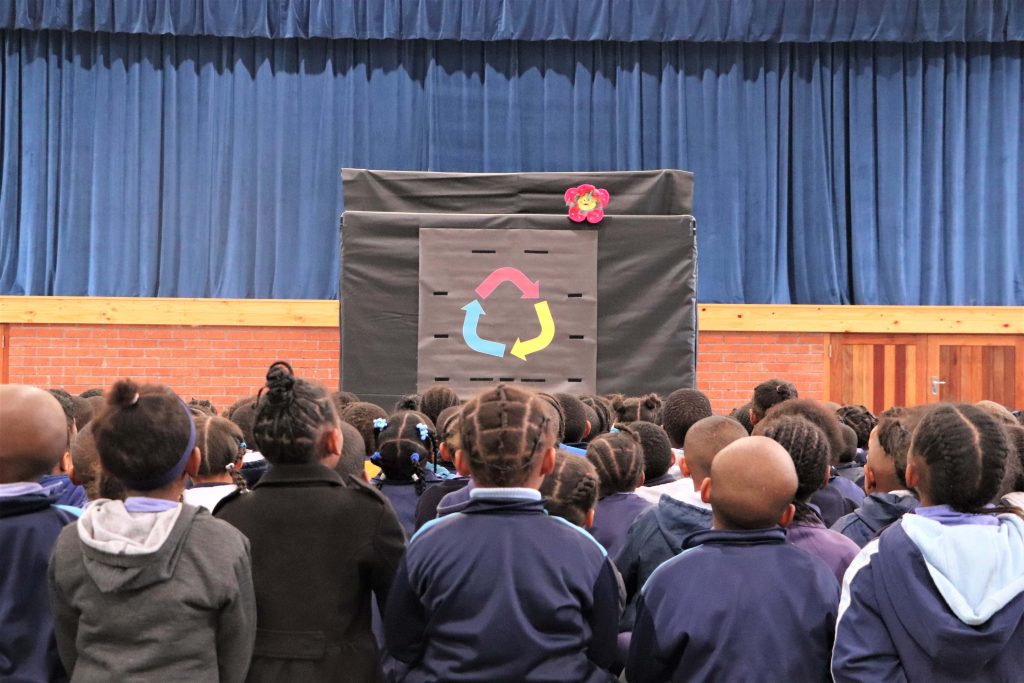
There’s nothing like a fun, interactive theater production to get children excited about caring for the environment. Last week, the Grade R to 3’s of 10 Theewaterskloof schools squealed, laughed and sang along during an educational puppet show about the how’s and why’s of recycling.
The performance is part of the Urban Low Emission Development Strategy (Urban-LEDS) project. Urban-LEDS is an international sustainability initiative currently in its second phase and ICLEI Africa is doing local implementation in partnership with the Overberg District Municipality, Theewaterskloof Local Municipality, and the Western Cape Department of Environmental Affairs and Development Planning.
“Interactive children’s theatre makes it possible to create completely fictional, fantasy characters that address certain issues, like the environment. Children identify easily with these characters,” explains Marhette van Huyssteen, co-owner and co-actor of Story Team, the organisation that created and performed the show. “The performances expand on the school curriculum, making it visual and real. This motivates learners to take action.”
The kids, who live in Grabouw, Caledon, Greyton, Genadendal, Riviersonderend and Viliersdorp, met Lovebell, a sweet flower puppet with ailing health because the evil human Rommella de Mors polluted water and air by littering. As Lovebell dies, the young eyes grow wide with indignation. Princess Pinky swoops in for lessons on waste and nature. A catchy song teaches them in which bins to throw their plastic, cans, glass and paper and they eagerly help Rommela, now a converted environmentalist, to clean up and bring Lovebell back to health. And so, these kids become champions for the environment.
“The youth believe in the possibility of a better world and are receptive to new solutions,” explains van Huyssteen. “Children also have the ability to influence their parents by singing the songs they heard in the show. In this way the messages are repeated at home and in the community.”
Each school now sports eight new collection bins in red, yellow, green and blue for their recyclables. The project’s footprint may be local, but this is the hallmark of Urban-LEDS. To integrate on-the-ground projects into existing development plans and processes to, ultimately, achieve provincial and national low emissions development targets. In this case, it speaks directly to strategic objectives in the Western Cape’s Integrated Waste Management Plan 2017 – 2022: Cultivate responsibility, educate, strengthen waste management infrastructure, consume fewer natural resources and divert 20% of recyclables by 2019.
However noble, the initiative needs a sense of longevity so the community continues recycling long after ICLEI Africa’s involvement ends. The key here is to stimulate the province’s coveted green economy – another of its strategic objectives. ICLEI Africa connected the schools with local Small, Medium and Micro-sized Enterprises (SMMEs) to keep the ball rolling and assist the schools with getting the sorted materials recycled. These recyclers will collect full bins, replace them with empties and recycle the materials to earn a steady income.
The model for collection implemented through this initiative was centred on learning and strengthening relationships amongst key stakeholders in the waste value chain in the Theewaterskloof Municipality. We hope this model can be replicated across communities in the Western Cape and nationally to ensure we limit the harmful impacts of waste on the environment and reduce the financial burden of waste management in local government.
Rebecca Cameron, Project Manager for the Urban-LEDS II project at ICLEI Africa
In its small way, this project exemplifies that change is a process: new bins and a puppet show is the cheerful kick-off to a future where recycling is the norm, small town economies bloom and the landfill is the last place we send our waste.

